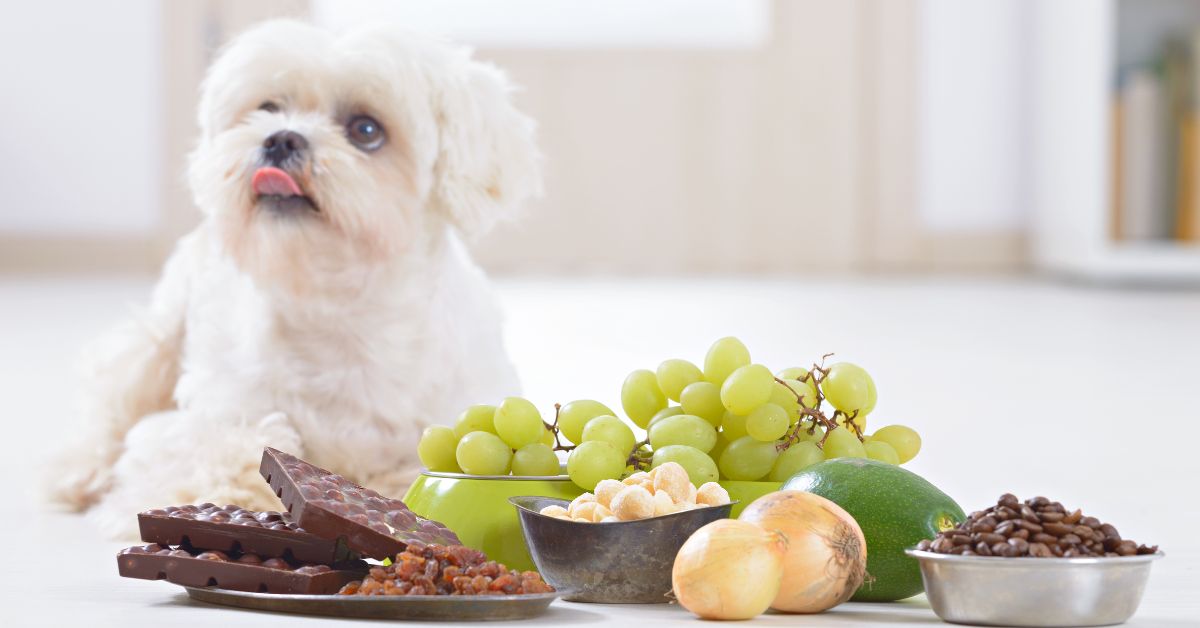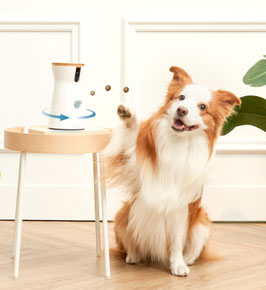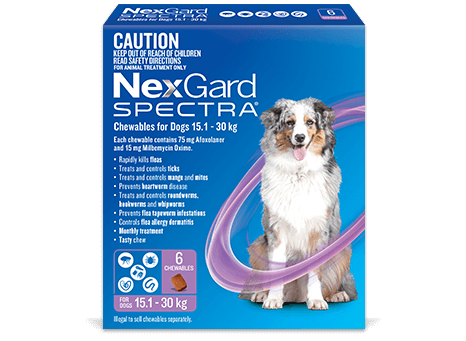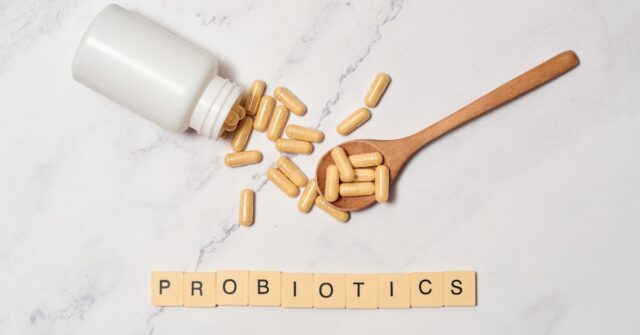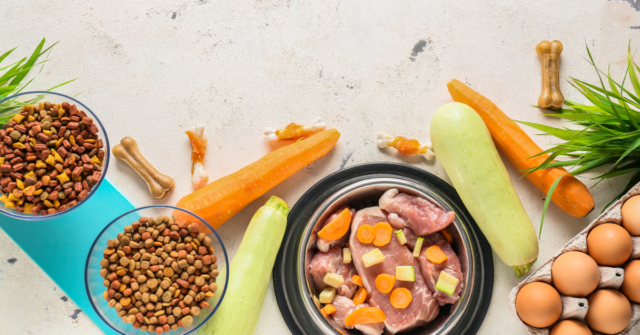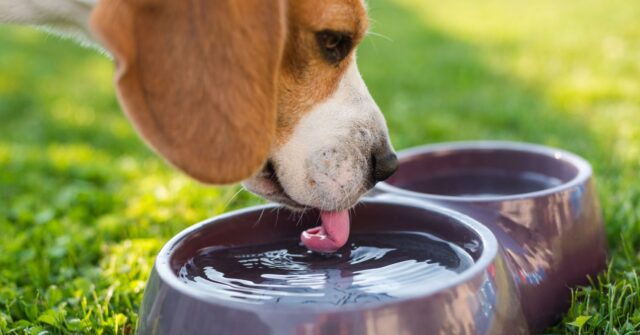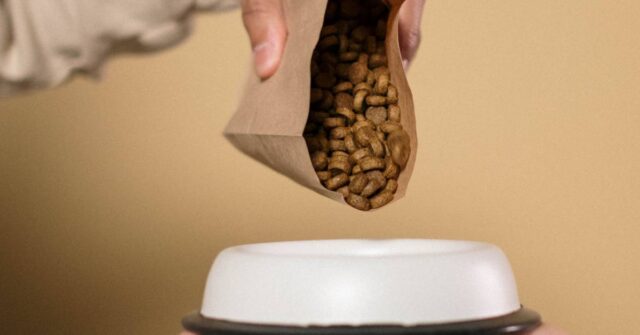As responsible pet owners, it’s vital to understand that the dietary needs of dogs are significantly different from humans.
This guide explores common foods that are dangerous to dogs, helping you keep your furry friends safe and healthy.
Introduction to Canine Diet Safety
Dogs are not just pets; they are family members who trust us with their well-being. It’s crucial to know why certain foods are unsafe for dogs and how we can prevent potential health risks.
Why Some Foods Are Dangerous to Dogs
Many everyday foods that are perfectly safe for humans can be harmful or even fatal to dogs due to differences in metabolism and digestion.
Substances that are harmless to humans can often lead to severe health issues in dogs.
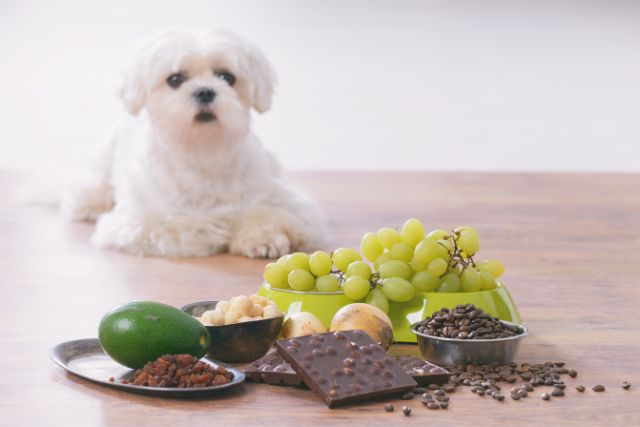
How to Quickly Assess Food Safety for Your Pet
Knowing which foods are unsafe is just the first step. Recognizing signs of toxicity and understanding labels can prevent many accidents, keeping your canine companion safe from harmful substances.
Toxic Foods To Avoid
This section covers a wide array of foods that should be kept away from dogs to ensure their safety and well-being.
Human Foods That Can Harm Your Dog
Many common household foods such as chocolate, onions, and grapes are extremely toxic to dogs and must be avoided at all costs.
Household Items and Substances Also to Avoid
Beyond food, various household items like certain plants, medications, and chemicals pose significant risks to dogs and should be securely stored away.
Detailed Look at Common Toxic Foods
Let’s dive deeper into why some foods are particularly dangerous to dogs, starting with the most commonly known hazards.
Chocolate: A Delicious Danger
Chocolate is one of the most well-known toxic foods for dogs. Theobromine, a compound found in chocolate, is metabolized much slower in dogs than in humans, leading to potentially fatal toxicity.
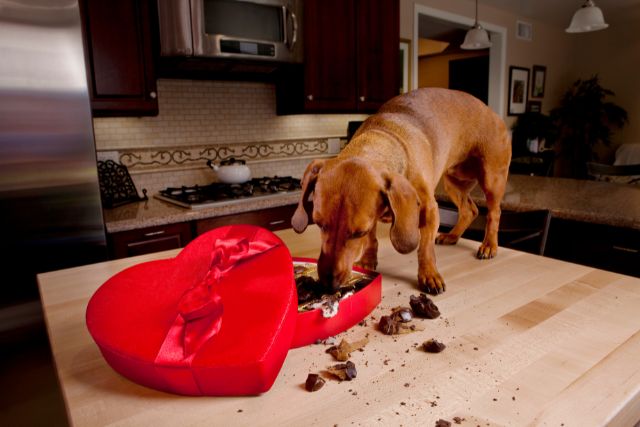
Grapes and Raisins: Small but Deadly
While delicious to humans, even a small amount of grapes or raisins can cause acute kidney failure in dogs, a condition that can be rapidly fatal without immediate treatment.
Onions and Garlic: Hidden Hazards in Foods
All members of the allium family, including onions and garlic, contain compounds that can cause oxidative damage to red blood cells in dogs, leading to life-threatening anemia.
Xylitol: Sweetener That Turns Bitter
Xylitol, a common sweetener in sugar-free products, can induce liver failure and hypoglycemia in dogs, even in small amounts.
Alcohol: No Happy Hour for Dogs
Alcohol has a significantly more potent effect on dogs than on humans, causing dangerous drops in blood pressure, body temperature, and blood sugar, which can be fatal.
Other Risky Foods and Ingredients
Beyond the well-known dangers, other foods also pose significant risks to dogs.
Caffeine: Not Just in Coffee
Caffeine can be deadly for dogs, leading to rapid heartbeat and severe hyperactivity. This stimulant is found not just in coffee but also in tea, soda, and energy drinks.

Dairy Products: Lactose Issues in Dogs
Many dogs are lactose intolerant and can suffer from digestive upset after consuming milk or dairy products, leading to discomfort and diarrhea.
Macadamia Nuts: Not a Safe Nut
Macadamia nuts can cause weakness, depression, vomiting, tremors, and hyperthermia in dogs. Symptoms usually appear within 12 hours and can last up to 48 hours after ingestion.
Avocado: Fats That Can Be Fatal
While the flesh of an avocado is less toxic, the pit, skin, and leaves contain persin, a fungicidal toxin that can cause serious health problems in dogs.
Recognizing Poisoning Symptoms in Dogs
Knowing the signs of poisoning can save your dog’s life. Rapid response is crucial in these situations.
General Signs of Food Toxicity
Symptoms of food poisoning in dogs include vomiting, diarrhea, lethargy, and more severe signs like seizures or collapse.
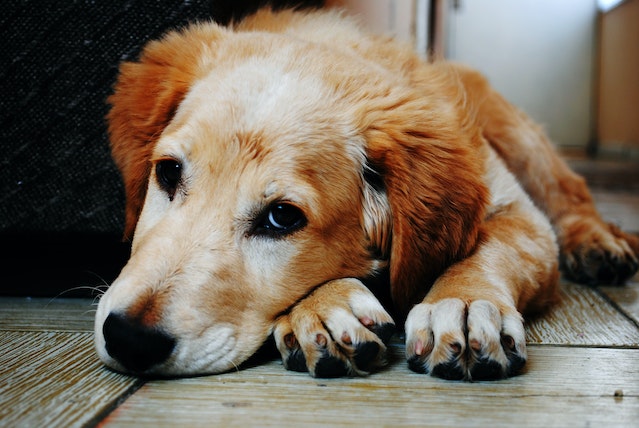
What to Do If You Suspect Poisoning
If you believe your dog has ingested something toxic, immediately contact your veterinarian or the nearest animal emergency service.
Early intervention can prevent more severe complications and can save your dog’s life.
Preventive Measures to Protect Your Dog
Prevention is the best cure when it comes to toxins. Here are steps to keep your dog safe from common household dangers.
Safe Snacking: What You Can Share With Your Dog
Understanding which human foods are safe can help you provide healthier treats. Small amounts of carrot sticks, apple slices (without seeds), and cooked meats are usually safe, but always in moderation.
Keeping Toxic Foods Out of Reach
Ensure that all dangerous foods are stored securely where your dog cannot access them. Educating your family about these dangers can also help protect your pet.
Emergency Response: Immediate Actions and Vet Contact
Knowing how to react in an emergency can be lifesaving. Here’s what you need to do if your dog ingests a toxic substance.
How to React If Your Dog Eats Something Toxic
Remain calm, remove any remaining toxic food, and assess your dog’s condition. Call your vet immediately, and follow their instructions closely.
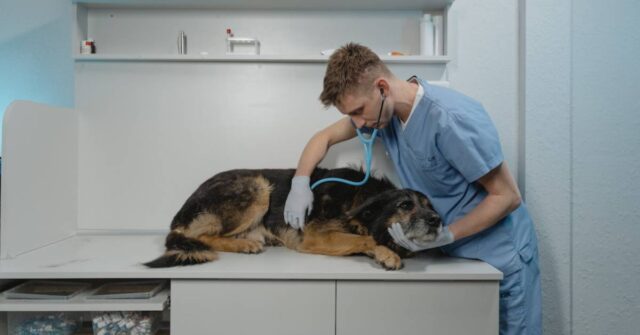
When to Rush to the Vet
If your dog shows any symptoms of poisoning, such as excessive drooling, vomiting, seizures, or collapse, go to the vet immediately. Fast action is crucial.
Conclusion: Maintaining a Safe and Healthy Diet for Your Dog
Keeping your dog safe from toxic foods is an essential part of responsible pet ownership. With the right knowledge and precautions, you can enjoy many happy, healthy years together.
Summary of Key Points
Always be aware of the foods your dog consumes and educate your family about the dangers of toxic foods. Prompt action and prevention are key to your dog’s health.

